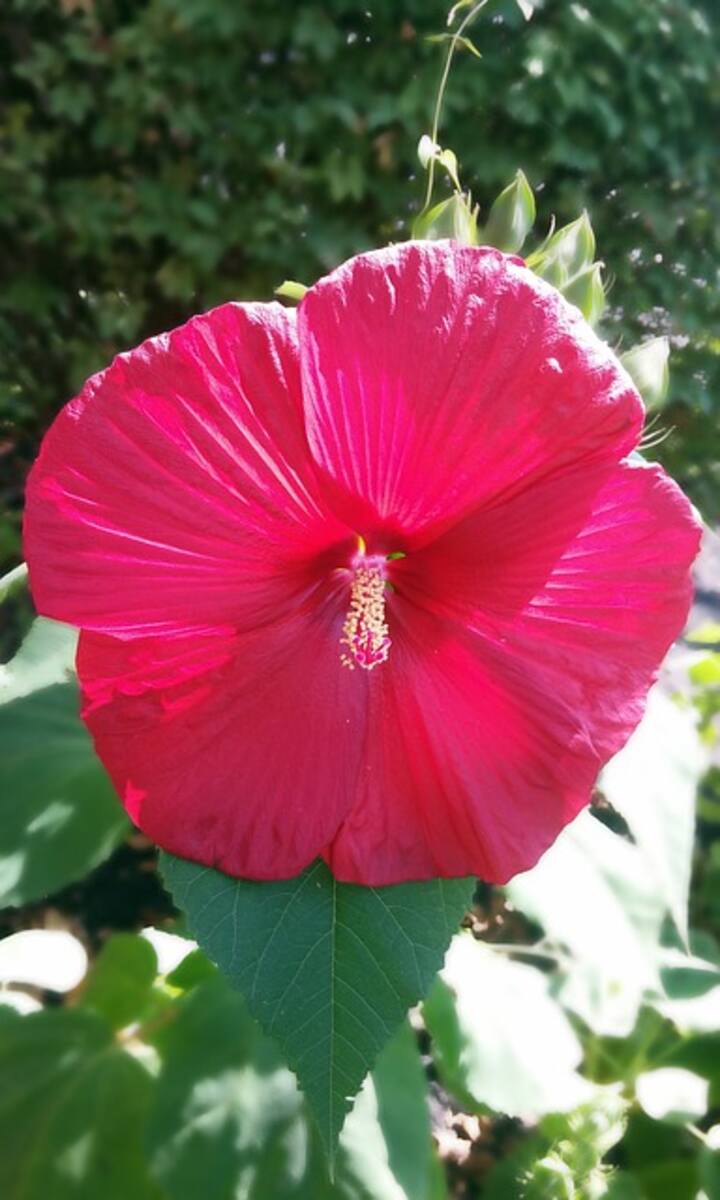Althea plant has long been valued for its soothing and anti-inflammatory properties. Especially helpful for digestive issues or compromised immunity, its use can also provide UV rays protection to the skin.
With its multi-trunk habit, this species makes for a versatile small landscape tree or hedge. Plant during the dormant season and fertilize during late winter or early spring for optimal results.
It is a shrub.
Althea shrubs make an excellent addition to any garden, offering versatility, durability, and ease of care. Available in numerous colors for planting as hedges or stand-alone plants – Altheas are especially beloved at nurseries or garden centers and a must-have in any collection!
Althea shrubs thrive in various soil types, preferring moist to well-drained conditions for maximum flower production. While full sun or light shade conditions are okay for growing them, darker conditions tend to reduce flower production. Althea plants are relatively easy to propagate via cuttings in early spring when growth has just started; to ensure success, it is essential to submerge cuttings until roots appear from beneath.
Once cuttings have taken root, they can be transplanted into the ground. It is best to choose an area with good drainage and abundant nutrients for planting; altheas is also drought tolerant once established.
Hibiscus syriacus cultivars like Blue Angel and Grewa make ideal shrubs for most climate zones, though not those where winter chilling levels fall short of what they need – insufficient chilling can reduce or delay bud break in warmer zones of zone 9. These tough plants are also multipurpose: used as general-purpose deciduous shrubs or trained into small trees for use as landscape containers or extensive landscape plantings.
It is a tree.
Double althea bushes are full-sized shrubs that produce stunning cup-shaped blooms from summer through fall, needing plenty of sun and well-drained soil conditions. When planting one, dig a deep enough hole to accommodate its root system; remove grass and weeds around its area to reduce competition for water. Additionally, fertilizer can significantly enhance their performance if used regularly – otherwise, symptoms of deficiency, such as stunted growth or smaller greenish-yellow leaves, could appear without its assistance!
It is a vine.
Hibiscus syriacus, commonly referred to as the rose of Sharon or shrub althea, is an upright deciduous flowering shrub that typically reaches 8-12′ in height and requires full sun with well-drained soil for proper care and watering during its first year after planting to establish robust root systems and avoid stunted growth or yellowish leaves caused by lack of nutrients – something organic matter or mulch can address. It blooms from summer until fall. Pruning can create small trees or espaliers while it requires full sun with well-drained soil and has long summer-fall bloom periods from summer until fall bloom period.
It is a herb.
Althea Plant (Hibiscus Syriacus) is a deciduous shrub hardy in USDA zones 5 to 8. With long blooming periods extending into fall, these flowers resemble those found on shrub roses and hollyhocks, appearing more like those from Hibiscus flowers up close. Ideal for use as hedges, borders, or stand-alone specimens – prune regularly during early spring to shape and reduce size; dead or damaged branches should be removed anytime during the year.
Althea plants have long been revered in traditional herbal medicine as sources of soothing demulcent properties for treating digestive ailments, such as gastritis and colitis. Additionally, its root can provide soothing demulcent properties to ease discomfort associated with inflammation, bowel diseases, or gastrointestinal tract infections. Furthermore, its roots contain large quantities of mucilage made up of acid polysaccharides such as rhamnogalacturonan or arabinogalactans while also harboring phenolic acids such as p-coumaric, ferulic, and salicylic acids for treating digestive conditions as well as inflammation bowel diseases or infections of GI tract infections.
Marshmallow root can also provide a gentle diuretic effect and effectively treat cystitis and urethritis. Rich in minerals and vitamin C, its extract can also be an emollient to soothe skin irritations.
As well as having medicinal qualities, the plant is an elegant addition to any garden landscape. Boasting large, colorful blooms that bloom over an extended season make this easy-care perennial an attractive choice – plant it in full sun with regular watering for best results!


